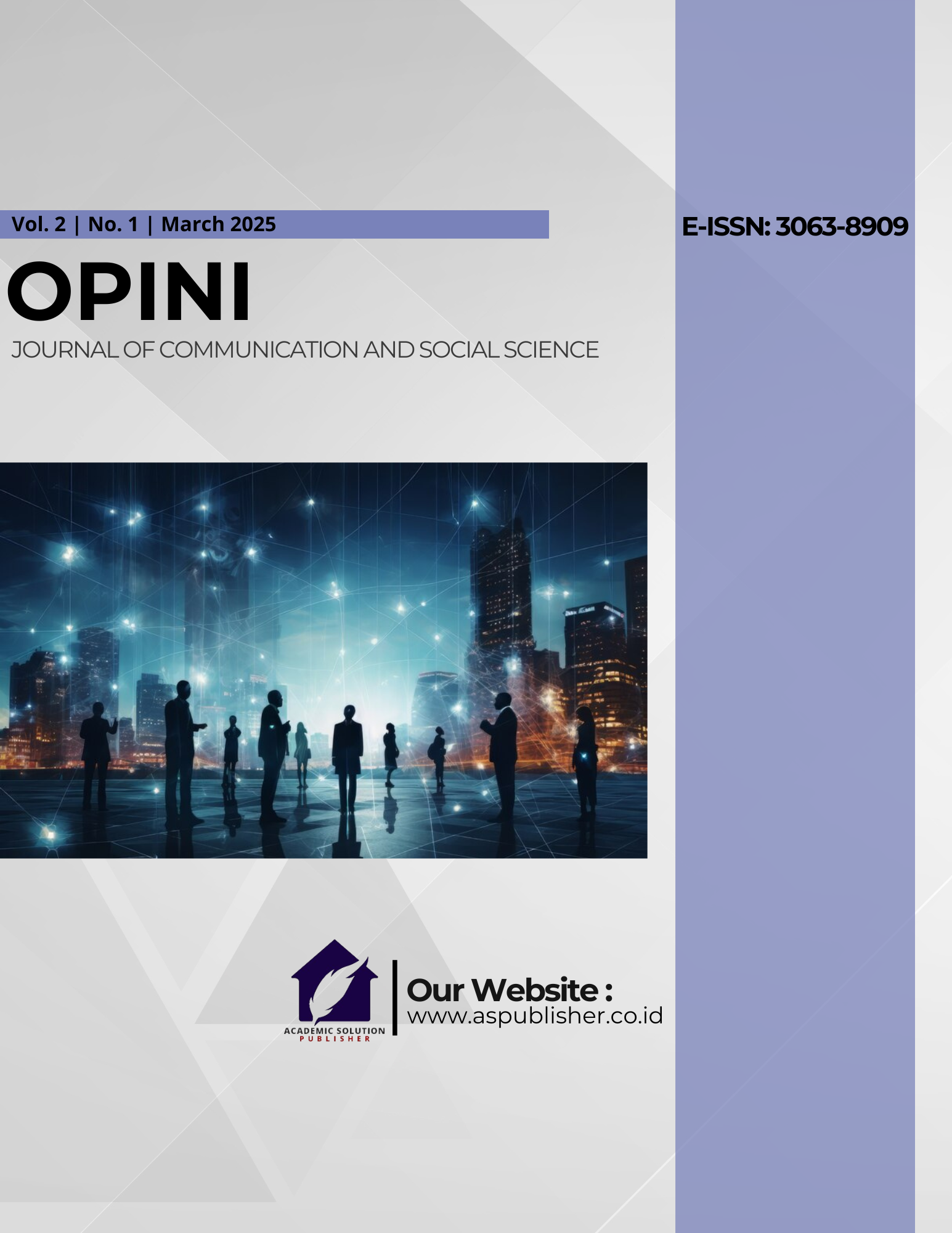The Role of Communication Ethics in Addressing Social Differences and Relational Challenges in the Digital Era
DOI:
https://doi.org/10.70489/ppzw0q07Keywords:
communication ethics, digital discourse, social difference, ethical engagement, media literacy, relational challenges, digital civilityAbstract
This study explores how ethical principles—such as honesty, empathy, responsibility, and dialogic respect—can address the growing challenges of online polarization, interpersonal conflict, and cultural fragmentation. Employing a qualitative literature review approach, this paper synthesizes insights from interdisciplinary sources spanning communication studies, media ethics, sociology, and digital literacy. The findings reveal that ethical communication is not only a theoretical construct but a practical necessity in digital ecosystems marked by anonymity, algorithmic bias, and declining civility. In particular, ethical frameworks rooted in dialogic theory and communicative action offer valuable strategies for navigating social differences and mitigating hostility. While challenges such as reduced empathy, shallow engagement, and institutional gaps persist, emerging opportunities exist through ethical platform design, digital education, and professional ethical leadership. Communication ethics, when embedded into policy, pedagogy, and everyday discourse, can transform online interaction into a space for inclusion, recognition, and relational healing. This study concludes that fostering ethically literate digital citizens is fundamental to achieving democratic engagement and sustainable peace in a digitally connected world. Communication must move beyond information transmission to become a vehicle for dignity, coexistence, and shared responsibility.
References
Arnett, R. C. (2012). Communication Ethics in Dark Times. Southern Illinois University Press.
Boyd, D. (2014). It’s complicated: The social lives of networked teens. Yale University Press.
Castells, M. (2013). Communication power. Oxford University Press.
Cheney, G., May, S., & Munshi, D. (2010). The handbook of communication ethics. Routledge.
Christians, C. G., Fackler, M., Richardson, K. B., Kreshel, P. J., & Woods, R. H. (2019). Media ethics: Cases and moral reasoning (11th ed.). Routledge. https://doi.org/10.4324/9780429027261
Elo, S., & Kyngäs, H. (2008). The qualitative content analysis process. Journal of Advanced Nursing, 62(1), 107–115. https://doi.org/10.1111/j.1365-2648.2007.04569.x
Ess, C. (2021). Digital media ethics. Polity Press.
Johannesen, R. L., Valde, K. S., & Whedbee, K. E. (2008). Ethics in human communication (6th ed.). Waveland Press.
Konrath, S., O’Brien, E., & Hsing, C. (2011). Changes in dispositional empathy in American college students over time. Personality and Social Psychology Review, 15(2), 180–198.
Microsoft. (2022). Digital civility index 2022. https://blogs.microsoft.com/on-the-issues/2022/02/08/digital-civility-index-2022/
Microsoft. (2022). Digital Civility Index Southeast Asia. https://news.microsoft.com
Nilsen, R., & Salvatore, D. (2020). Respectful dialogue in divided times. Journal of Communication Ethics, 18(3), 45–58.
Papacharissi, Z. (2015). Affective Publics: Sentiment, Technology, and Politics. Oxford University Press.
Pew Research Center. (2021). Online harassment 2021. https://www.pewresearch.org
Pew Research Center. (2021). Social media and polarization in the digital age. https://www.pewresearch.org/internet/2021/10/13/political-polarization-and-the-media/
Turkle, S. (2015). Reclaiming conversation: The power of talk in a digital age. Penguin.
UNESCO. (2021). Media and information literacy: Policy and strategy guidelines. https://unesdoc.unesco.org/ark:/48223/pf0000377066
UNESCO. (2022). Global media and information literacy assessment framework: Country readiness and competencies. https://unesdoc.unesco.org/ark:/48223/pf0000380612
Ward, S. J. A. (2020). Disrupting journalism ethics: Radical change on the frontier of digital media. Routledge. https://doi.org/10.4324/9781351059281
Downloads
Published
Issue
Section
License

This work is licensed under a Creative Commons Attribution-ShareAlike 4.0 International License.








